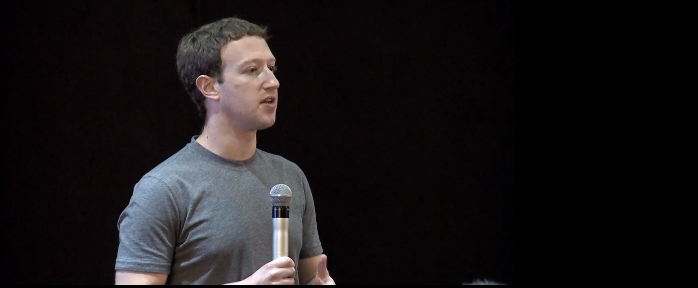To the background of some jamming Latin tunes, Facebook cofounder and T-shirt enthusiast Mark Zuckerberg held a public town hall in Colombia today. In addition to announcing a new initiative to give free basic Internet access to everyone in the country, he fielded a question about the future of the Internet.
One eager Colombian asked what Zuckerberg thought Facebook would look like in 10 years, and he took it as an opportunity to opine about the future of social networks more broadly.
The short description is three major trends:
1). There will be (a lot) more people on the Internet.
2). We’ll be more likely to message people through photos or SMS than the old web interface.
3). The future of computing is augmented reality: distraction-free, heads-up communication.
The first two are somewhat unsurprising. Cisco estimates that India alone will double its user base by 2018, with an expected 526 million connected people.
As far as alternative messaging, the field is rapidly expanding. For instance, the Facebook-owned WhatsApp messenger has surpassed SMS in number of messages sent. Then there’s Snapchat, which is just communication through momentary pictures; it has exploded in growth, with a reported 100 million users.
Text may be a shrinking part of the future of the Internet. For example, the Apple Watch promises to keep users connected through haptic vibrations (like sending someone your heartbeat as a vibration on their wrist watch).
“The diversity of the ways in which people want to share, the moments that people want to communicate, and the tools that people need to stay connected are going to keep growing,” Zuckerberg explained, noting that this could be a major source of competition for Facebook.
But the real juicy prediction is augmented reality. “In another 10 to 15 years, you can imagine that there will be another platform, which is even more natural and even more built into our lives than mobile phones,” he explained. Zuckerberg’s imagination is worth quoting in full:
“I think it’s pretty easy to imagine that in the future we will have something that we can either wear — and it’ll look like normal glasses (so it won’t look weird like some of the stuff that exists today). And you’ll just be able to have context with what’s going on around you in the world and communicate with people and not have to disrupt your conversations by looking down.”
The swipe at Google Glass “looking weird” probably did not go unnoticed by his neighbors down the road in Mountain View. Zuckerberg did mention that virtual reality company Oculus could be an important part of that augmented reality future. This is probably why Facebook paid a bazillion dollars (OK, $2 billion to be more precise) for the nascent startup.
Readers can see the full talk here. The background music alone may be worth it.
VentureBeat's mission is to be a digital town square for technical decision-makers to gain knowledge about transformative enterprise technology and transact. Learn More

